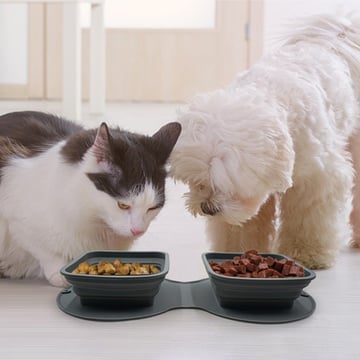Dogs and Silicone – An Overview
Silicone has become a popular material in recent years for a wide range of applications, from kitchenware to medical devices. But can it be used safely for dogs?
The Properties of Silicone
Silicone is a synthetic material made from a mixture of silicon, oxygen, carbon, and hydrogen. It is popular for its heat resistance, flexibility, and non-stick properties. It is also hypoallergenic and easy to clean.
Why Silicone is Used for Pet Products
Silicone is now being used in a range of pet products such as toys, feeding bowls, and grooming items. It is a great choice for pet owners because it is non-toxic, durable, and easy to clean.
When Silicone Can be Harmful to Dogs
While silicone is generally safe for dogs, there are some situations where it can be harmful. For example, if a dog chews on a silicone toy and ingests a large piece, it can cause a blockage in their digestive system.
Silicone and Allergic Reactions
Some dogs may have an allergic reaction to silicone, in the form of skin irritation or an upset stomach. If you notice any signs of an allergic reaction, stop using silicone products and consult a veterinarian.
Eco-friendliness of Silicone
Silicone is often marketed as an eco-friendly alternative to plastic. While it is true that silicone can be recycled, it is not as widely accepted by recycling facilities as other materials.
Potential Risks of Chemical Leaching
There have been concerns over the potential for chemicals to leach from silicone products, especially in high heat situations. However, studies have found that any leaching is minimal and not harmful to humans or pets.
Cleaning Silicone Products for Dogs
Silicone products are generally easy to clean and can be washed with warm water and soap. However, be sure to check the product's care instructions and avoid using abrasive cleaning products that may damage the material.
Conclusion
Silicone is generally safe for dogs and is becoming a popular material for pet products due to its non-toxic, durable, and easy-to-clean properties. However, pet owners should be aware of the potential risks associated with ingesting large pieces, allergic reactions, and proper cleaning techniques.
Quote Inquiry
Contact Us Now!

